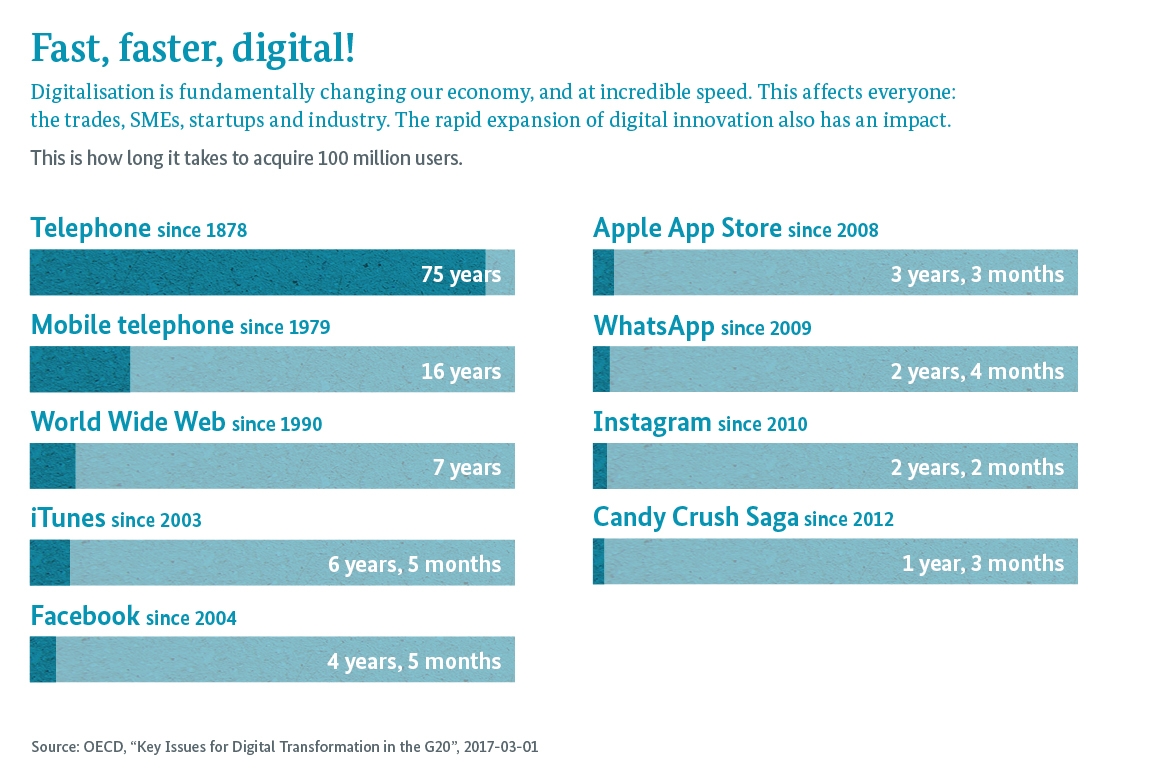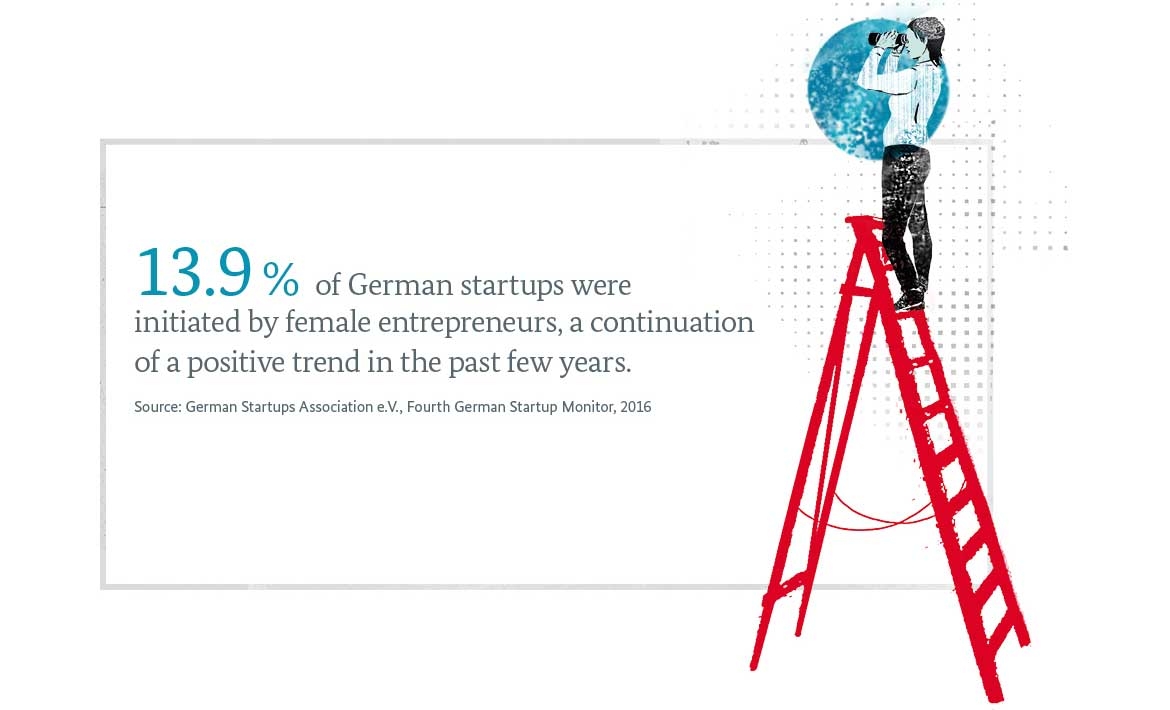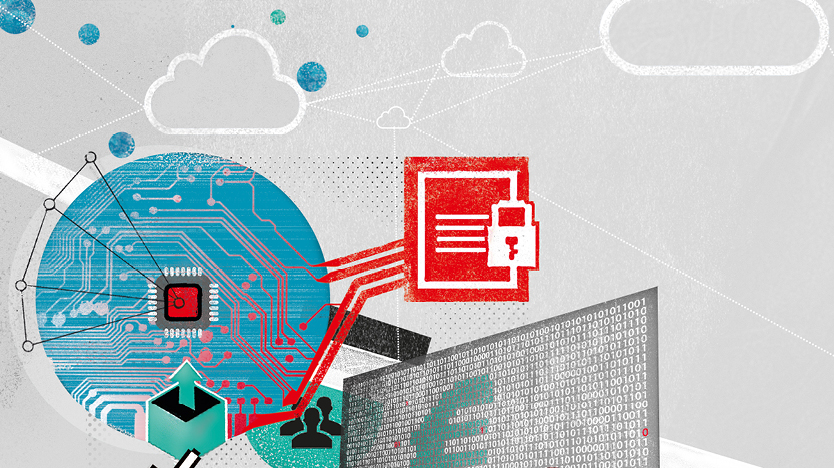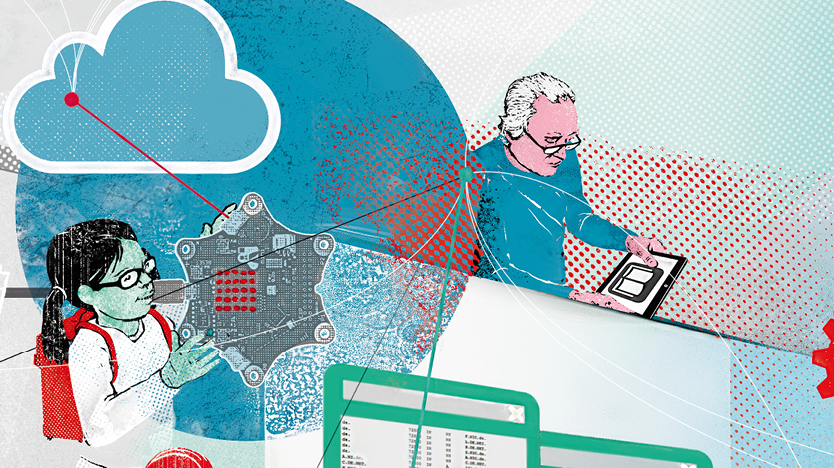
© BMWK / Herr Müller
Pizza, pasta, Pad Thai-delivery services in the food sector are booming in the Internet age. New business models are continually arising, for example a comprehensive package for amateur cooks: they choose a recipe online, assemble a shopping list with one click and shortly thereafter receive their purchases from the supermarket around the corner.
Even planning construction in the craft trades is done digitally: for example, a plumber can create various designs with a tablet, using special software. The customer gets a realistic picture of his or her future bathroom, and the workman can order the parts from the wholesaler with one click.
New software solutions, Industry 4.0 applications, standardized e-business processes and digital connectivity provide huge opportunities to businesses: enhanced efficiency, better customer service, greater cost savings and entirely new business models.

© BMWK
Networks and capital for startups
What young companies often lack is capital, especially during their growth phase. This is a task to be addressed by politicians. To assist startups, BMWK provides investment incentives to business angels with programs such as INVEST. It is also important to founders to test new technologies and business areas and to deal with regulatory issues. So-called Real Laboratories with temporary experimentation rooms for limited periods of time and shifting locations would be very helpful.
Digital Hubs such as those currently initiated in Germany bring together German and international startups, scientists, investors and established companies. In this digital ecosystem, founders benefit from the knowledge and networks of established companies, and they in turn learn about digital innovation first-hand.

© BMWK
“Hands-on Digitalisation” for SMEs
Whereas startups have recognized the opportunities offered by digitalisation, medium and small business is still reluctant. For more than have of SMEs, digitalisation is not currently part of their business strategy. The reasons are, among other things, lack of technical and digital expertise in the company, or misgivings regarding the cost.
However, technologies such as cloud computing provide many middle-sized companies the possibility of sourcing IT solutions from the Internet. Data memory and applications do not need to be operated by the company or not to the full extent, and only the volume and programs actually used is charged. This saves money and encourages innovative potential and flexibility – if companies know how to tap this potential. Innovative technologies such as 3D printing used for producing replacement parts are often still future dreams.
For this reason BMWK has set up eleven Mittelstand 4.0 Competency Centers throughout Germany that provide “Hands-on Digitalisation” to SMEs. In demonstrations and learning factories small and medium-sized enterprises can gather information on digital applications and innovative technologies, and try out their own new technologies before making any investments.
| Customised furniture |
|---|
| Using your own ideas to design shelves or a bed and having them custom-made? Digital manufacturing makes this possible. Customers design their own furniture on a screen and then the manufacturing data is sent to a furniture manufacturer near the customer. Using digital CNC drills in automated manufacturing processes, the custom piece is produced. This is a win-win situation: the customer gets customised furniture at a good price, and local businesses get commissions that help them finance their expensive machines. |
How does everyone else do it?
Learning from each other – that is the approach taken by the G20 countries in their global digitalisation initiative. Having individual countries present their best practices and sharing experiences with one another should provide assistance for startups and SMEs and help the G20 countries to start their own national initiatives.
![To homepage Logo [EN]de.digital](https://www.de.digital/SiteGlobals/DIGITAL/StyleBundles/Bilder/sublogo_en.png?__blob=normal&v=1)





